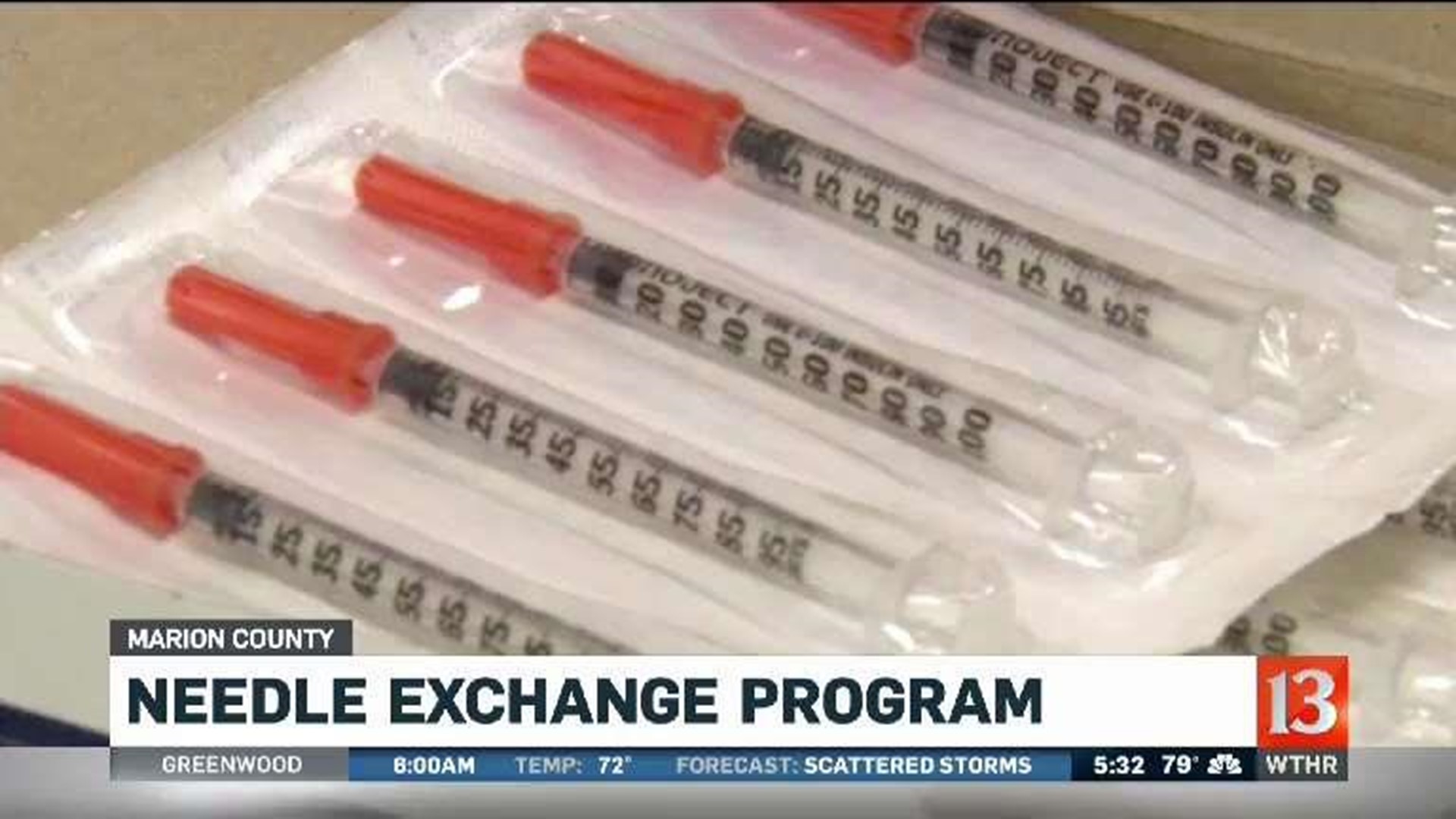INDIANAPOLIS (WTHR) - Marion County now has a needle exchange program after the City-County Council unanimously approved it Monday night.
Health officials say it's to fight the alarming increase in Hepatitis C cases and curb the rate of HIV infections, both of which can be spread by drug users sharing needles.
The Marion County Department of Public Health wants to get started quickly, but also realizes that they need to do some outreach before that can happen. That's because the program will initially operate out of a mobile unit which will travel to parts of the city hit hardest by the drug problem.
James Bailey's neighborhood on the near west side is one of them. It has a high rate of drug overdoses, which he is well aware of.
"What this drug epidemic is doing to people I'm deeply concerned about it," Bailey said.
He said he'd welcome a mobile syringe exchange program visiting his neighborhood.
"I just hope some of them doing this can get clean needles and know where to go to get help," Bailey said.
But Jukima Cummings feels differently.
"I don't agree with it at all, don't believe in it," she said.
Cummings, who works at a church daycare, doesn't want the program near kids and worries it will make the drug problem even worse.
"I feel like it's saying it's OK to keep doing these drugs," she said. "They're going to feel in their mind, 'Hey, you're giving me new clean needles, so let me go do it even more.'"
Marion County Public Health Director Dr. Virginia Caine said, "We're not going to go in any neighborhood where we don't have the support, so that means we really have to engage them."
Caine said it's important people know what's involved and what's not before any decisions are made.
"People wonder will my crime rate go up? And we've done a lot of documentation from a lot of places and the crime rate does not go up," she said. "If anything it might go a little lower because we may have more law enforcement officers looking more closely at those areas."
She also noted that exchanging needles is just part of the program. The mobile unit will also do Hepatitis C and HIV screenings, referrals for substance abuse and mental health treatment and help sign people up for health insurance.
Tranee Elmore, who grew up in the neighborhood, said she's hopeful the program will make a difference.
"I think it could possibly work, I'm not saying it will, but just the fact that someone's saying let's make a change...I mean whatever we can put out there to make it work, why not?" Elmore said.
Caine said first up is getting a fully-equipped mobile unit and then deciding which areas to target first. She said she expects the unit would be used four times a week, not just during the day, but evenings, too, to accommodate different schedules.
Ultimately, she'd also like to have a permanent location for the program, but said for now, the mobile unit should help a lot. The hope is get the program started in form this fall.

